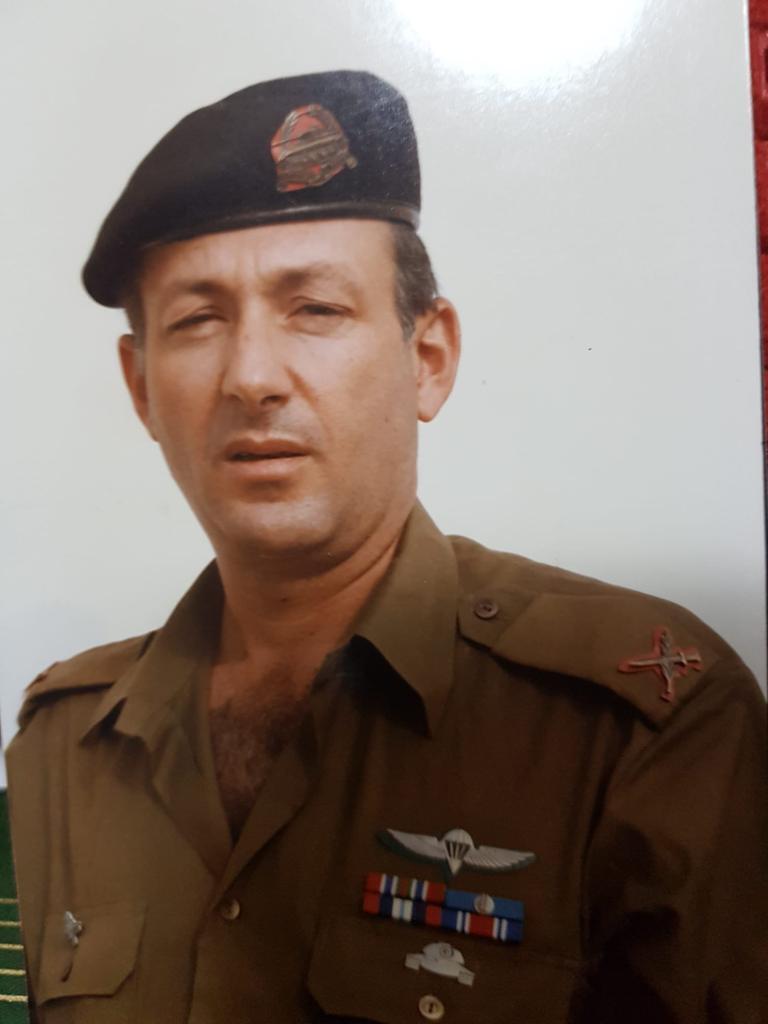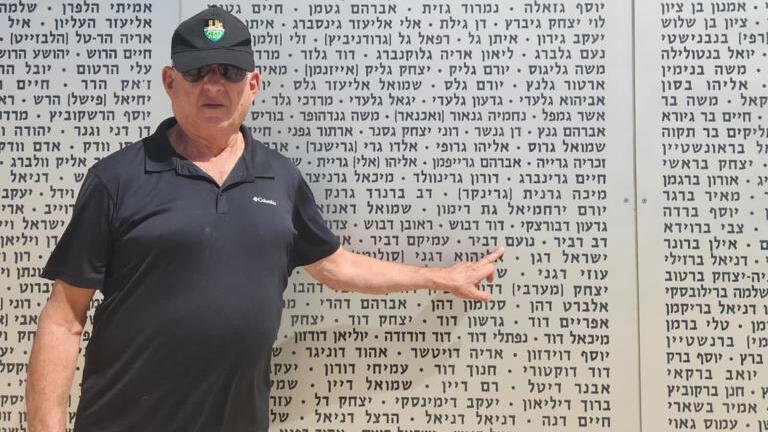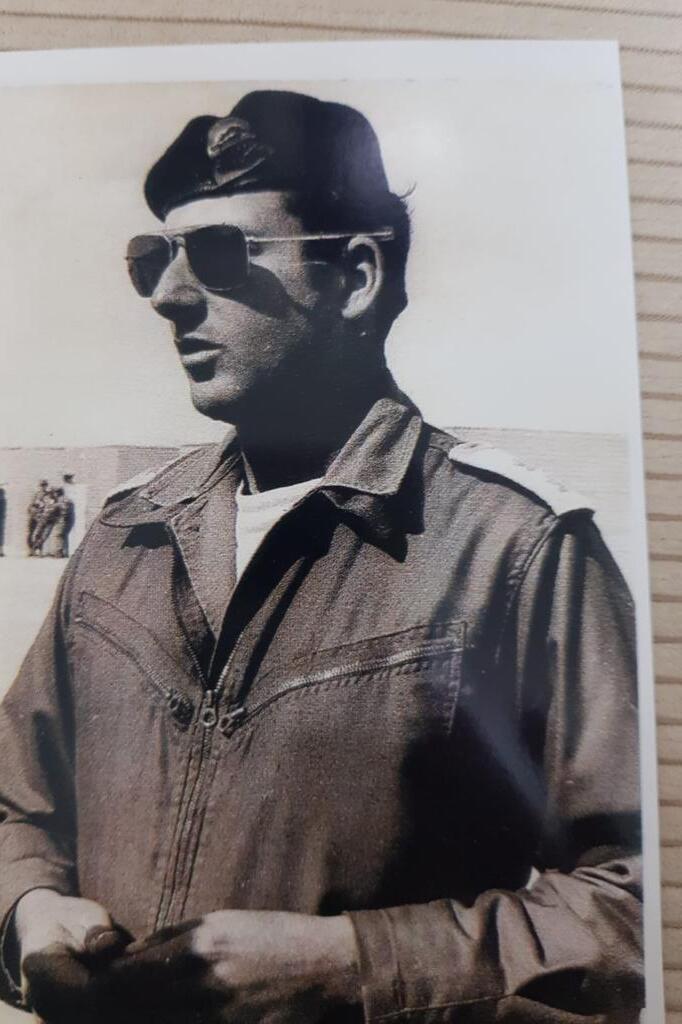During the outbreak of the Yom Kippur War, the Armored Corps' 9th Battalion, commanded by Brig. Gen. Yom-Tov Tamir, experienced significant casualties. The unexpected assault by Egyptian forces resulted in the loss of 67 soldiers in a single day. Following the successful crossing of the Suez Canal, Tamir remained with the Israel Defense Forces from the western side. Now, 50 years later, he shares unique details of his extraordinary experiences during those tumultuous days.
Read more:
"During the cease-fire, I learned that there were discussions with the Egyptians regarding the separation of forces, and one of the agreed-upon points was the possibility of searching for missing soldiers," recalls Tamir, who received the Medal of Distinguished Service for his role in the war. "I heard that the military rabbinate teams were going to the area where we had fought and which was then under Egyptian control, east of the Suez Canal. I went to the division headquarters and met with division commander Ariel Sharon. I said, 'What do the rabbis know? I want to go there.' During the war, I had a beard and hadn't shaved for a long time. So Ariel, in his typical manner, said to me, 'You have been ordained as a rabbi.'"
"I removed my rank, took a kippa from one of the soldiers, and traveled back to the occupied area," he recalls. This is how the secular commander found himself disguised as a rabbi. "Accompany me to where I need to go. I arrived at the Chief Rabbi of the IDF, Mordechai Piron. He began to interrogate me, asking where I had studied. Rabbi Yisrael Zingerevich, the chief rabbi of the Corps, took him aside and spoke with him"
Two months before the outbreak of the war, Zingerevich was still the rabbi of Brigade 7, until he was promoted to the position of the rabbi of Division 252 in Sinai.
"As part of the discussions with the Egyptians, we had the option to venture into the area to scout sites where we suspected we had fallen soldiers that we couldn't retrieve during the fighting. Initially, only the military rabbinate personnel were allowed to enter, so as not to raise suspicion that we had ulterior motives," Zingerevich explains.
"We included Yom-Tov Tamir so that someone with operational expertise would also be present. The chief military rabbi asked who he was and where he studied, so we told him that he studied at Merkaz Harav Yeshiva. Since then, we've been teasing him that he's a student of Merkaz Harav. Over the years, Piron learned the truth, but it took time," he says.
"We were accompanied by a Dutch UN officer and an Egyptian intelligence officer," Yom-Tov Tamir recalls. "I noticed that the Egyptian officer looked worried, but I didn't know why. I wanted to reach the tank of the company commander that was under attack. The Egyptian officer saw that I knew where to go and suddenly said to me in Hebrew, 'You're not a rabbi. You're the commander of Division 9.' I denied it."
From there, an interesting conversation developed between him and the Egyptian officer. "We started talking and he told me where he studied. He had a master's degree in Middle Eastern studies from the University of New Delhi. As we spoke further, he said to me, 'What I don't understand about you Jews is why you take the blood of children for the Passover matzah.' I told him, 'You're an educated person, Mohammed. How can you believe such nonsense?' I assume he read blood libel stories, maybe the Protocols of the Elders of Zion," Tamir says.
"We arrived at the tank of the platoon commander, Uri Hakman, may he rest in peace, which was burnt. Inside the tank, we found nothing. I noticed that the ground next to the tank was uneven. I took a shovel from the tank's equipment and dug, and I found the bodies of the platoon commander and his driver, Meir Akrish, may they rest in peace. We collected the bodies and brought them to the burial site in Israel," he adds.
Shivers up your spine
Zingerevich,76, remembers Tamir fondly to this day. "In my eyes, in terms of his devotion and dedication to the people of Israel, Tamir would be fitting to be a student of the esteemed Merkaz Harav. In terms of his love for the State of Israel and the land, what we said about him is not far from the truth," he says.
Zingerevich remembers past events from his perspective as part of the military rabbinate. "Each person has his own Yom Kippur War. I remember the synagogue emptying around noon, with soldiers heading off to the battlefield. It's impossible for you not to have shivers up your spine. Some of the soldiers that left for battle, I never saw again. I get teary eyed just thinking about it," he recalls.
As part of the expedition that went into the field during the cease-fire, Zingerevich took part in the initial recognition of those killed in battle. They were also in charge of evacuating the tanks still left out there. "A friend of mine told me our role during funerals is just as difficult as climbing inside a tank to remove soldier's remains. When we met grieving families, I could tell he was right," he recounted with sadness.
First published: 18:02, 09.19.23





